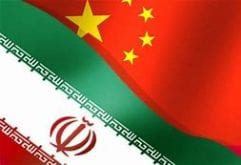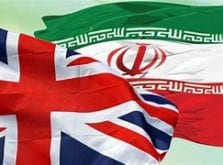Al-Monitor – As part of a reshuffle inside Iran’s Foreign Ministry, veteran diplomat Bahram Ghassemi was recently appointed as the country’s new ambassador to France. Ghassemi’s mission is said to be focused on reinvigorating international diplomacy to save the Joint Comprehensive Plan of Action (JCPOA), a deal that has been shaky ever since US President Donald Trump pulled the United States out of it last May.
The new ambassador is now hectically tapping on Europeans to speed up practical measures they have promised. Ghassemi sat down with French Foreign Ministry Secretary-General Maurice Gourdault-Montagne in Paris. Gourdault-Montagne is a member of the supervisory board of the Instrument in Support of Trade Exchanges (ISTEX), a trade mechanism launched in January by the European signatories of the JCPOA as a means to facilitate lawful trade and shield it against US sanctions. The official Twitter account of the Iranian Embassy in France described the meeting as “very constructive and positive.”
Within the same diplomatic push, Hamid Baeidinejad, the Iranian ambassador to the UK, also quoted the INSTEX director as saying that serious efforts are underway for the first trade exchange with the Iranian side via the new so-called special purpose vehicle as soon as possible.
Despite Europe’s political pledges to protect the JCPOA, Iran has repeatedly complained about what it perceives as European inaction. As recently as April 30, Deputy Foreign Minister Abbas Araghchi, one of the key architects of the deal in 2015, said Iran’s patience was running thin. “It’s been a year since the US withdrew from the JCPOA. But those countries [Europeans] have not yet sorted out a solution to protect Iran’s promised dividends,” Araghchi added, warning that the JCPOA could come to an end at any moment.ALSO READTERRORISMTrump allies push back on Muslim Brotherhood terror designation
In the latest phase of its so-called “maximum pressure” campaign targeting Iran’s economy, the US administration last week announced that sanctions waivers granted to Tehran’s top eight oil buyers will not be extended. Iran has defiantly dismissed the move, saying it has its own ways of shipping its oil out.
But the battle is not exclusive to the economic front. Foreign Minister Mohammad Javad Zarif is now shuttling among different camps and appearing on media outlets more than before to publicize Iran’s stance, as talk of a possible US war on his country is heating up these days.
During a visit to neighboring Qatar, where he discussed bilateral ties with the officials of the tiny but oil-rich Persian Gulf State, Zarif found some room to once again take to Twitter and hit out at US national security adviser John Bolton for his “warmongering.”
Back in Iran, a US military strike may still sound like a farfetched theory. Hamid Reza Asefi, a former Foreign Ministry spokesman, who hails from the more pro-engagement Reformist camp, contends that the US government is merely seeking to alter the behavior of the Iranian leadership rather than promote regime change or plan a military strike. “The United States is trying to bring Iran to the negotiating table. Regardless of whether those talks bear fruit, US officials will come out as winners, because they will claim … that they forced Tehran to give in to their conditions,” Asefi told pro-Reform Arman daily. He noted that talks with the United States will not serve Iran’s interests at the moment.
The retired diplomat also gave confirmation to a similar remark by one of Iran’s most powerful generals, Qasem Soleimani who commands the Quds Force — which is the foreign operations branch of the Islamic Revolutionary Guard Corps. “Negotiating with the US under the existing circumstances is tantamount to surrender. We will definitely not accept such humiliation,” Soleimani said at a conference in Tehran April 29.
An outright rejection of rapprochement with the United States was once a key bone of contention, dividing hard-liners and moderates in Iran’s political landscape. But the Trump administration’s intensifying pressure seems to have gone past the partisan divide, creating a domestic consensus over the argument that any talk with the current US government is “a strategic mistake,” to quote a description by moderate parliament speaker Ali Larijani.Found in:IRAN DEAL
 Shabtabnews In this dark night, I have lost my way – Arise from a corner, oh you the star of guidance.
Shabtabnews In this dark night, I have lost my way – Arise from a corner, oh you the star of guidance.


